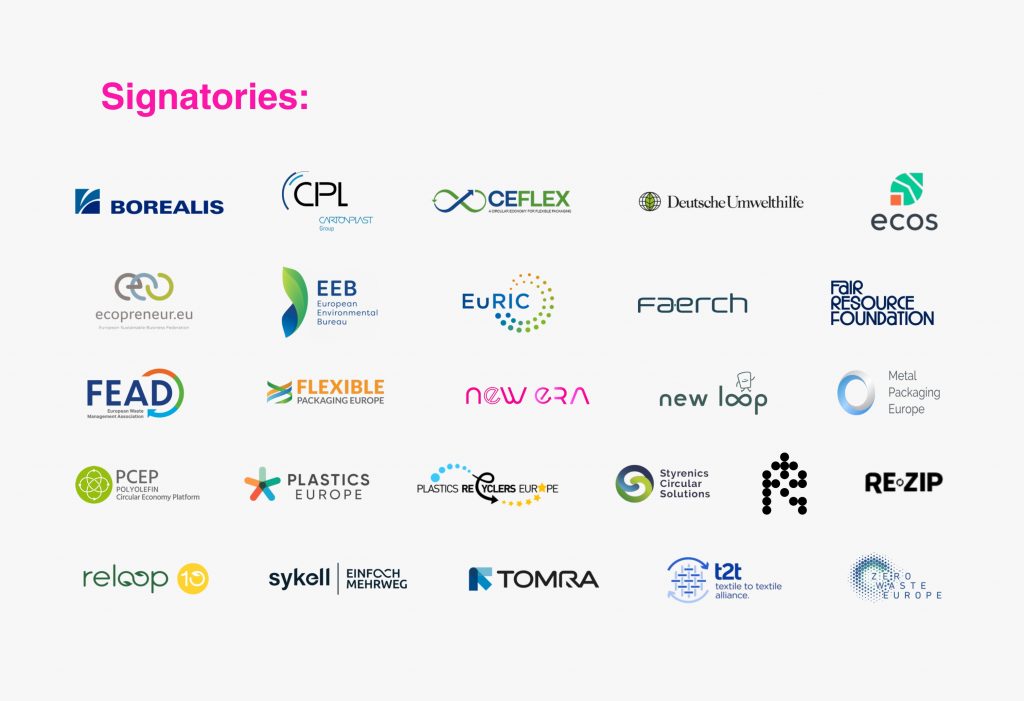29 April, 2025
Dear Executive Vice-President Ribera,
Dear Executive Vice-President Sèjournè,
We, the undersigned coalition of circular economy trade associations, businesses, and NGOs from across Europe, are writing to express our concerns regarding the current draft of the Clean Industrial State Aid Framework (CISAF), and its notable omission of support for circularity measures.
Strategic Importance of Circularity
The Clean Industrial Deal (CID) recognises that “Circularity will be a priority. It is the key to maximising the EU’s limited resources, reducing dependencies and enhancing resilience. It reduces waste, lowers production costs, lowers CO2 emissions and creates a more sustainable industrial model that benefits the environment and enhances economic competitiveness. The ambition of the Clean Industrial Deal is to make the EU the world leader on circular economy by 2030.”
This ambition cannot be realised without appropriate financial support mechanisms, to scale-up enabling infrastructure. By placing circularity at the core of our decarbonisation strategy, the EU not only improves the affordability and accessibility of essential materials but also reduces strategic dependencies as materials are reused, remanufactured, recycled, and kept within the economy for longer.
The Case for Circularity under CISAF
While we welcome the Commission’s communication for a Clean Industrial Deal (CID) and the supporting framework provided by CISAF, we are deeply concerned that despite “Circularity and access to materials” being explicitly identified as the fourth pillar of the CID, it has not been afforded the same provisions within the State Aid Framework as other priority areas.
The draft CISAF contains provisions for the following types of aid measures:
However, circularity measures have been omitted in this support framework, creating a significant policy inconsistency that could hinder the sufficient availability of secondary raw materials, which undermines the CID’s stated objectives.
Our Request
We therefore respectfully urge the Commission to ensure the CISAF includes explicit provisions for Circularity measures.
Enabling state aid for projects that boost material circularity will make Europe’s industrial production more sustainable, accelerate decarbonisation efforts, and significantly enhance resource security. It is a natural and necessary step to support the CID’s objective of increasing material circularity up to 24% by 2030, ensuring resources remain in circulation for as long as possible.
As Europe strives for strategic autonomy in a resource-constrained world, we must ensure that all pillars of the Clean Industrial Deal receive equal policy and financial support. The inclusion of Circularity under the CISAF is not merely an environmental consideration but a fundamental economic and strategic imperative.
We remain at your disposal to discuss this matter further and look forward to your positive response.
Yours sincerely,


